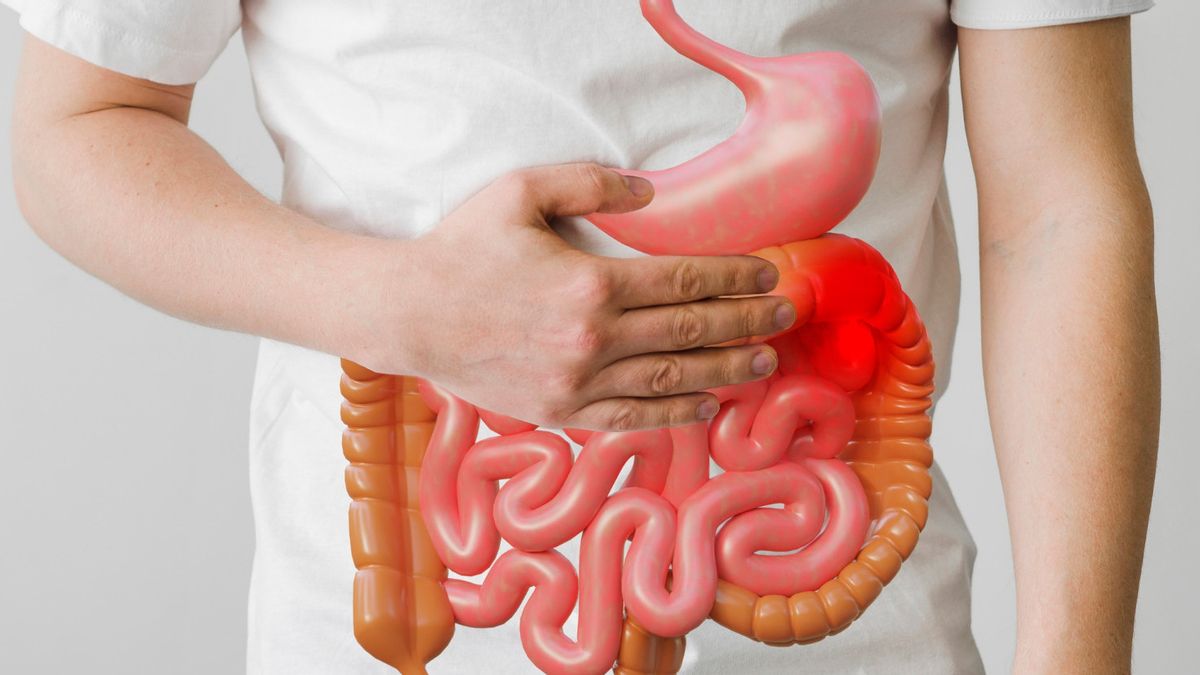YOGYAKARTA Mental stress has a big impact on physical health. This includes disrupting the digestive system. According to research published in the book Neuroscience, more neurons are in the intestines than in the spinal cord. Obviously, professor of medicine in the field of gastroenterology at Wake Forest University Baptist Medical Center, Winston-Salem, North Carolina, Kenneth Koch, MD., stress can affect every part of the digestive system.
Usus in the digestive system is partially controlled by the central nervous system in the brain and spinal cord. In addition, it has its own neuron tissue in the digestive system layer, known as the entertainment or intrinsic nervous system. The entertainment nervous system, along with 100 million nerve cells that coat the digestive tract from the concavity to the rectum regulates digestive processes such as:
When a person faces a potentially threatening situation, a sympathetic nervous system that regulates body functions such as heart rate, breathing, blood pressure, also triggers an opponents-or-run response to releasing the hormone stress cortisol and makes the body alert or ready to face threats. Stress causes physiological changes. Such as increased awareness, breathing and faster heart rate, increasing blood pressure, increasing blood cholesterol, and increasing muscle tension. Obviously, doctor Koch's opponents-or-run response affects the digestive system. These include causing congestion concavity, increasing acid in the stomach, making you feel nauseous, and diarrhea or constipation.
In serious cases, stress can cause a decrease in blood flow and oxygen to the stomach which can cause cramps, inflammation, or imbalance in gut bacteria. This also exacerbates digestive disorders, including intestinal irritation syndrome (IBS), intestinal inflammation disease (IBD), stomach hatchling, gastroescent reflux disease (GERD).
"Although stress does not cause ulcers or inflammation of the gut, stress can worsen this disease and other digestive diseases," Koch explained as quoted by Everyday Health, Thursday, February 1. Because the stress influence is very significant and can interfere with digestion, here's how to manage the most effective stress.
Physical activity relieves tension and stimulates the release of chemicals in the brain called endorphins as pain relievers. endorphins improve sleep quality that can help relieve stress, according to the Anxiety and Depression Association of America.
Koch also explained that regular exercise is also the best way to manage stress and digestive health. Like the findings of research in 2022 which examines the relationship between exercise and anxiety symptoms. In controlled groups of participants, low physical activity is also very beneficial to overcome anxiety.
These mind-body exercises combine physical poses with breathing and meditation techniques. According to a study published in 2018 in the International Journal of Preventive Medicine, women who take yoga hatha classes for one hour three times a week during 12 sessions achieved significant stress, anxiety, and depression. Research also shows that yoga can lower blood pressure and heart rate.
Yoga is also beneficial for people with digestive disorders. A review of research published in 2022, establishing yoga is a useful intervention to relieve stress, anxiety, and depression and improve the quality of life for IBD sufferers.
SEE ALSO:
There are many meditation techniques that can help you focus your mind on an object, activity, or mind to help you reach calm. While the purpose of meditation is not to reduce stress, it's good to do it regularly.
An important part of stress reduction is self-care. For many people, it involves managing your time as effectively as possible. A study also supports the benefits of having time management skills. As a result, observing the relationship between time management, anxiety, and academic motivation. Children who are skilled at managing time, have better work results.
That's how to manage stress that significantly affects the digestive system. If you often experience digestive system disorders due to stress, stress, and anxiety, it's better to do the above methods regularly.
The English, Chinese, Japanese, Arabic, and French versions are automatically generated by the AI. So there may still be inaccuracies in translating, please always see Indonesian as our main language. (system supported by DigitalSiber.id)

















